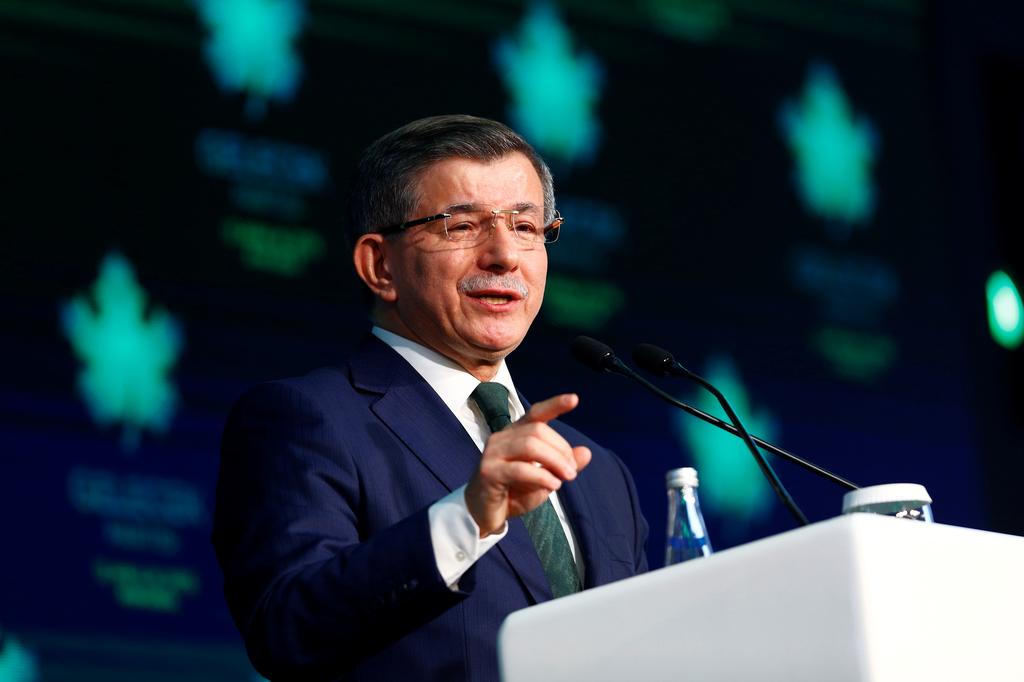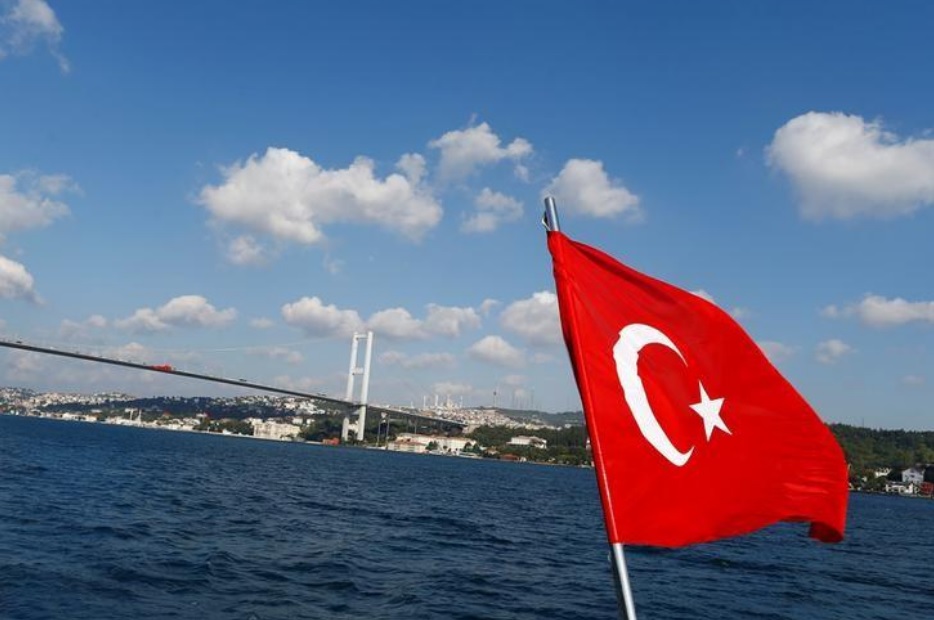
ANKARA (Reuters) – Turkey risks military confrontation in the eastern Mediterranean because it prizes power over diplomacy, a former prime minister who championed a less confrontational policy in the first decade of President Tayyip Erdogan’s rule told Reuters.
Ahmet Davutoglu, whose “zero problems with neighbors” mantra was a hallmark of Erdogan’s early dealings with Europe and the Middle East, broke with the president’s ruling AK Party last year to set up the rival Gelecek (Future) Party.
He criticized what he described as a lurch toward authoritarianism under Turkey’s new executive presidency, and accused the government of mishandling a series of challenges including the economy, the coronavirus outbreak and the growing tensions in the eastern Mediterranean.
Last month Turkey sent a survey vessel, escorted by frigates, to explore for oil and gas in waters claimed by Greece, a move Athens said was illegal. The two NATO allies are locked in a dispute over the extent of their continental shelves and maritime economic zones.
The European Union, backing EU members Greece and Cyprus, has imposed minor sanctions against Turkey, and a collision between Greek and Turkish warships shadowing the survey vessel last month highlighted the potential for military escalation.
Davutoglu said Ankara had genuine grievances over Greek claims to tens of thousands of square kilometers of sea extending up to Turkey’s Mediterranean coast, but added that Erdogan’s approach carried high risks.
“Unfortunately our government is not doing a proper diplomatic performance,” he said in an interview, warning that if both Greece and Turkey prefer “power projections” over diplomacy, “at any time any crisis may erupt and escalate”.
TIME TO TALK
Turkey should say clearly to the European Union: “‘Let’s come around the table and share all views’,” Davutoglu said. It should also sit down with Greece to “discuss all matters (and) de-escalate the tension”.
Erdogan’s government said it was on the verge of announcing a resumption of talks with Greece last month when Athens signed a deal setting out its maritime border with Egypt – an agreement which cut across waters claimed by Turkey.
Ankara cut off the process in protest, and a visit to Greece and Turkey by Germany’s foreign minister last week appeared to make no headway. EU leaders will discuss the standoff later this month and could take further action against Turkey.
Davutoglu, who served as Erdogan’s foreign minister from 2009 to 2014 and then as prime minister for two subsequent years, worked to strengthen Turkish ties and influence in the Mediterranean and Middle East.
But years of talks with Greece were suspended in 2016, and Davutoglu’s Middle East strategy was derailed in the turmoil of the Arab uprisings, when relations with Syria and Egypt collapsed over Ankara’s support for Muslim Brotherhood groups.
Davutoglu’s Future Party is one of two which has broken away from Erdogan’s AKP. Neither has registered above low single figures in recent polls, but by eroding the AKP’s support they have made Erdogan’s quest for a majority in elections due by 2023 more challenging.
Editing by Gareth Jones
Image: FILE PHOTO: Former Turkish prime minster Ahmet Davutoglu speaks during a news conference to announce formally the establishment of his Future Party in Ankara, Turkey, December 13, 2019. REUTERS/ Alp Eren Kaya




